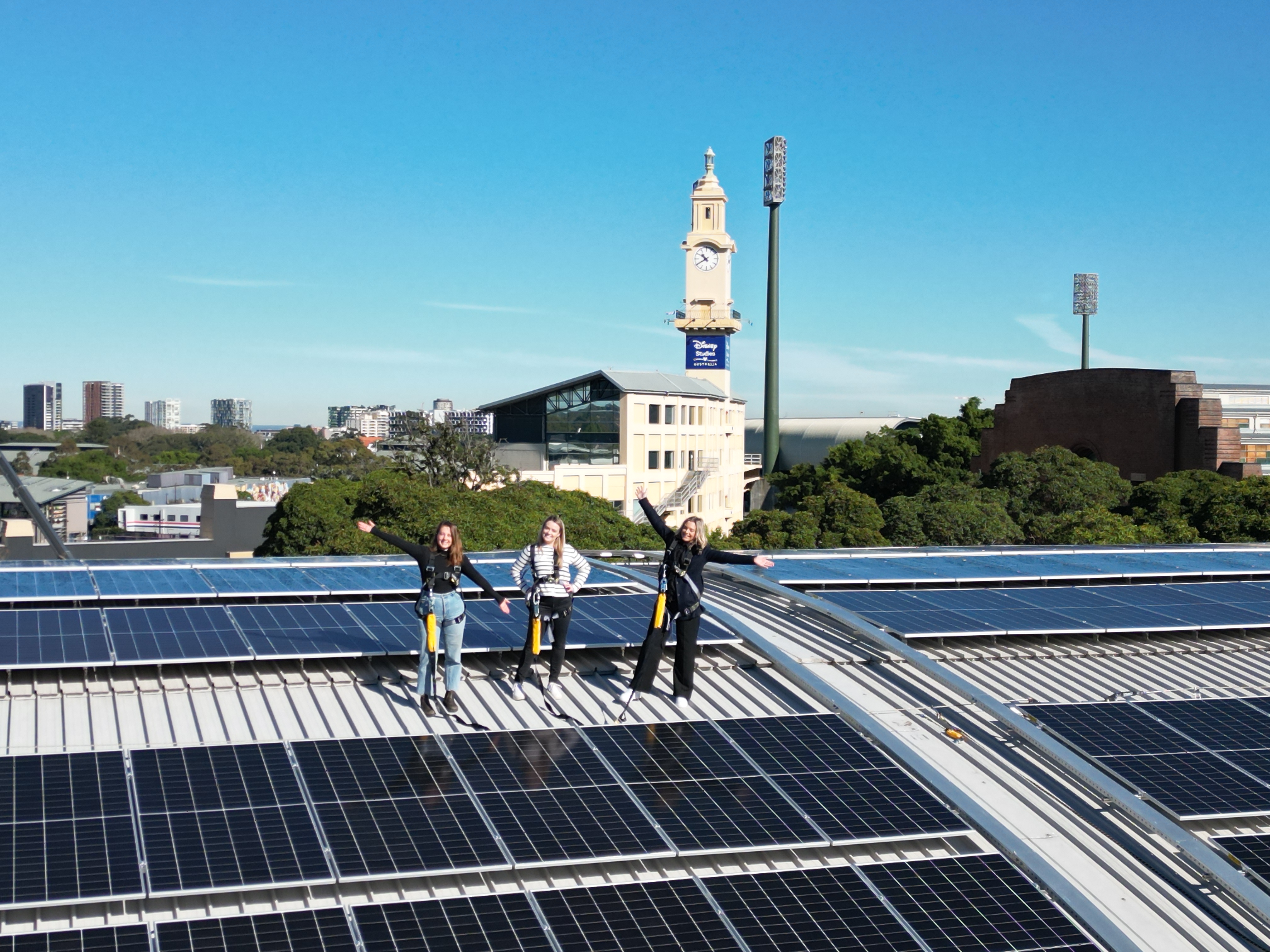The Doll Factory shows fun can be eco-friendly
The Doll Factory, produced by UK’s Buccaneer Media for Paramount+, took part in albert's scheme and showed how sustainability and fun can play together.

On a busy production, it can be hard to implement a raft of sustainable measures in a short space of time.
But, by using simple ideas such as Green Employee of the Week, Green Newsletters, Eco Week and a lot of cactus plant prizes, The Doll Factory showed their crew sustainability doesn't have to be a drain on already busy schedules and can be a lot of fun. Here's how they did it.
Green Employee of the Week and Newsletter
Each week production awarded ‘Green Employee of the Week’ to the crew member who had made the best effort to be sustainable. They also released a green newsletter as a way to communicate sustainable measures to the crew.
Eco Week
The crew held Eco Week – a one-week competition where every department competes to see who can be the most sustainable. Eco Week on any job is not about being the most sustainable production. It’s all about using a lighthearted competition to show crew members that small changes to their everyday routine can make a big difference in the grand scheme of things.
Cups and Water Bottles
On The Doll Factory, we asked every cast and crew member to bring in their own water bottle and Keep Cup. We have estimated that we saved over 17,520 compostable cups from being thrown out, and that isn’t including all the large extra days where we would have required around 300 cups per person per day. We have saved £7008.00 by not buying cups for the production. And by not buying single-use water bottles, we diverted around 14,600 plastic bottles from being thrown out.

Meatless Monday
Our catering team, Celtic Soul Food, organised a meat-free day for the last day of Eco Week. They also had all compostable ware throughout the job and ensured to source local, Irish produce wherever possible. Swapping red meat for plant-based food just one day a week reduces climate-change-causing emissions even more than eating locally every day.
Hybrids
All the rental cars of The Doll Factory were hybrids which drastically reduced our fuel usage. Our Production Designer was so impressed with the hybrid that we rented for her and how efficient it was that she has bought her own hybrid car in London.
HVO Fuel
This is the first production where we have used entirely HVO fuel*, and for the first time, the locations generators are not the largest part of our carbon footprint. We used all HVO fuel for the unit base and locations generators as well as all the standby trucks and unit cars. Using HVO eliminated 90% of our net CO2 on The Doll Factory.
*Currently, HVO fuel isn’t widely available in Australia


Assistant Directors
Kieron, the Third Assistant Director, started bringing in cutlery for the AD department every week so they didn’t need to use disposable options.
Bébhinn, our Extras Coordinator, ensured all the Extras brought their own keep cups and water bottles with them.
Sound Department
Paddy, our Sound Mixer, has a solar-powered van so that he never needs to hook up to a generator on set and can also park his van anywhere! They also used rechargeable batteries.
Electrical Department
The Sparks used nearly all LED lights on The Doll Factory, which drastically reduced our power usage. It also meant they were able to use mains power and not always be reliant on a generator.


"We tried to focus on implementing as many small changes as we could to show our crew that every action counts. Even small behavioural changes can have a lasting impact on the environment and can lead to major changes in the way our industry works."

Construction
The painters used ecological paint with no VOCs. The construction team saved all the doors and windows and reused them on multiple sets. Any waste timber is used to fuel their biomass boilers which heat the workshops and reduces any waste or the need for high-carbon fuels.
Accounts Department
Our Accounts team are entirely paperless, which has massively reduced the amount of reams we have had to buy for the production.
To hear albert’s full story on the sustainable production practices implemented on The Doll Factory, head here!










